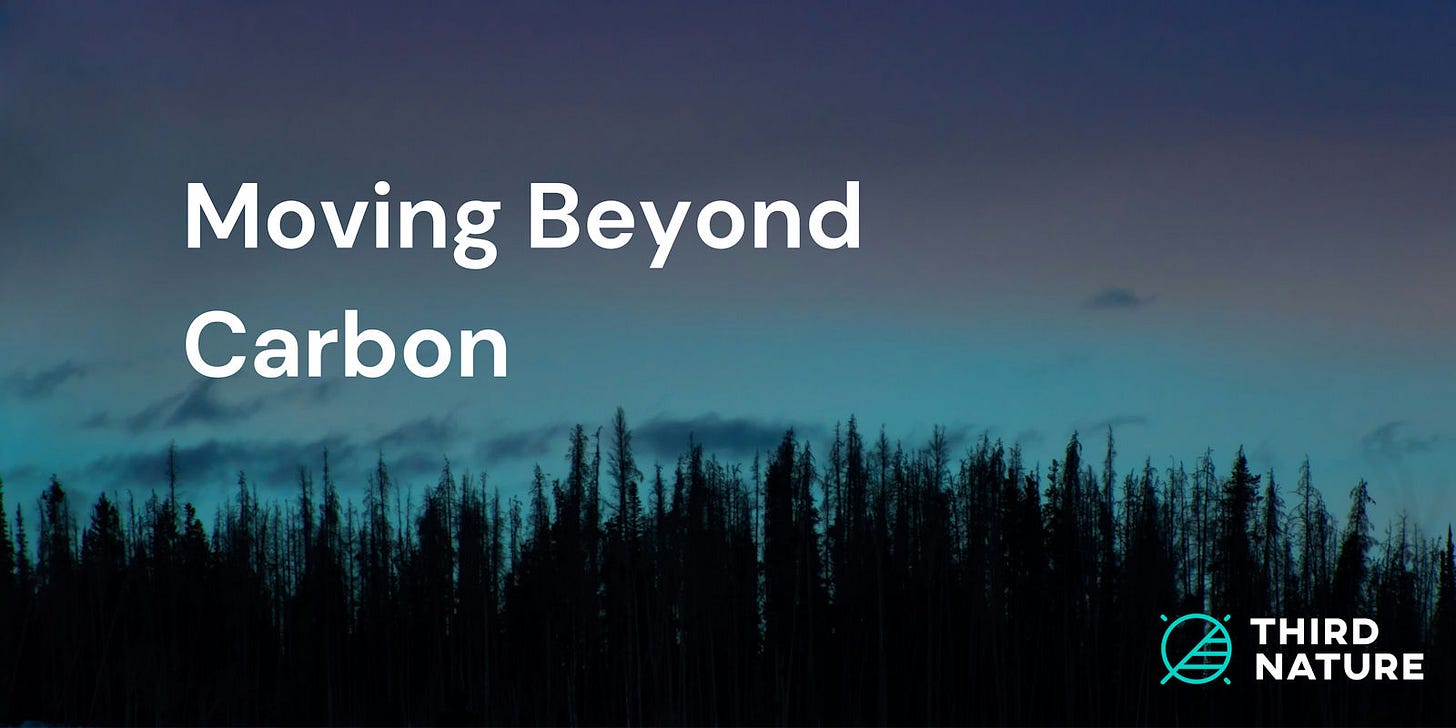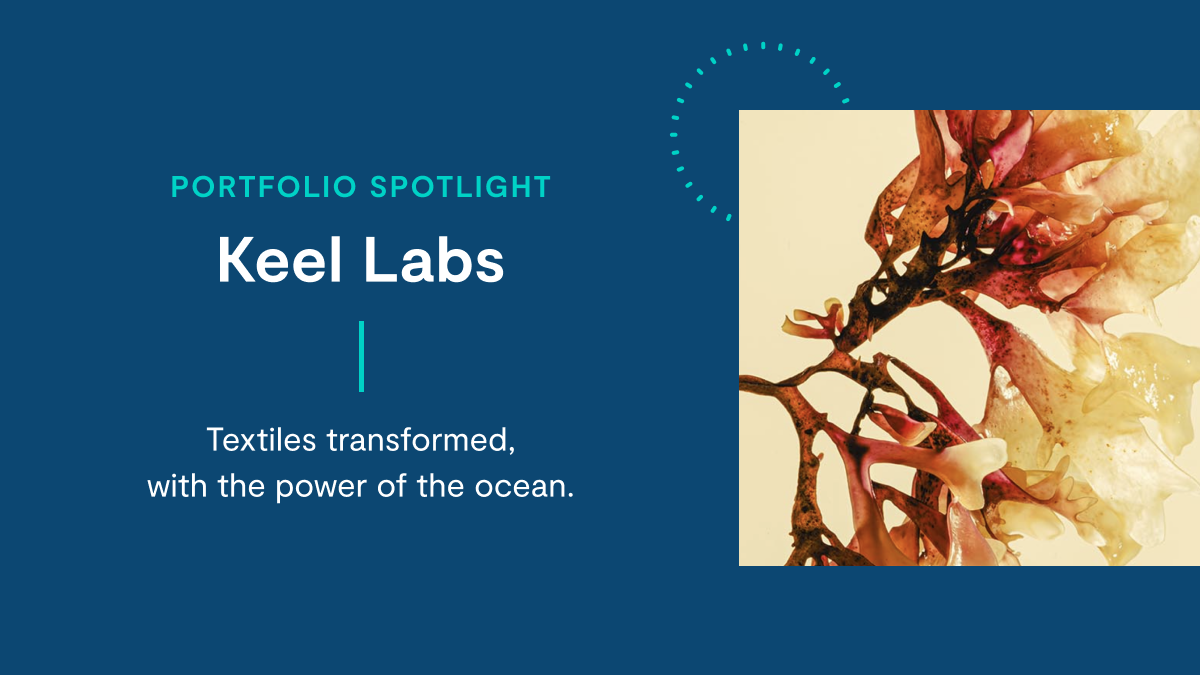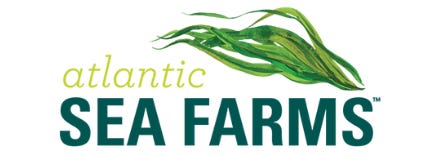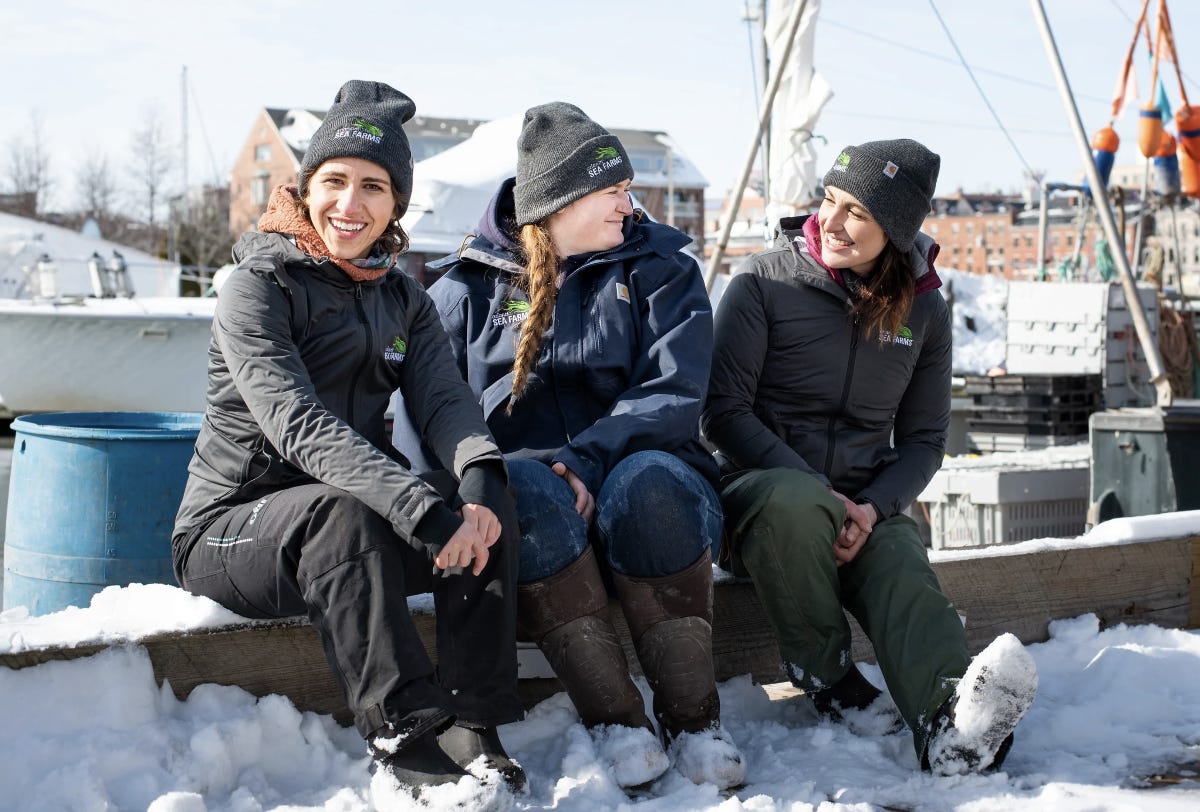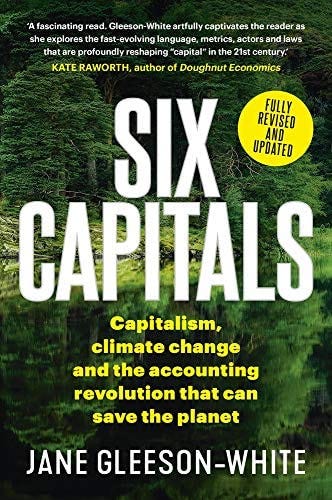Moving Beyond Carbon + What's Next
The future of climate action rests in understanding and improving our collective ecological footprint.
Going Beyond Carbon Footprint
This fall I attended and participated in a number of gatherings related to the future of doing business more responsibly — Climate Week NYC, followed by Natural Products Expo East, and finally the Regenerative Food Systems Investment Forum in Denver.
First of all, it was just great to be speaking with people in person again! But I sensed a pent-up energy, maybe from the 2+ years of the pandemic. Or maybe it is because we are collectively awakening to the fact that change is no longer a choice, but a necessity. While these events varied greatly, there was a clear acknowledgement at all of them that we need to move from pledging niceties to real transformative action. Consumers are leading the charge — demanding more transparency, more responsibility, and more authentic and genuine leadership from the business sector and the public sector. We are seeing entrepreneurs stepping up with innovative business models that are shifting the DNA of what a business is and what its impact both socially and environmentally must be.
We are enthusiastic about the attention on climate tech, and the growing understanding that we will need to do much much more than simply decarbonize our atmosphere. Carbon emissions are only one of many huge challenges facing life on this planet. Getting to net zero carbon by 2050 is an ambitious goal, but it doesn’t go far enough. We need to go beyond climate change and look hard at the effects that industry has on oceans, land, biodiversity, and more.
Everyone is talking about carbon footprint, but around the corner it will be expected that brands will be reducing and even eliminating the vast majority of their entire ecological footprint while also delivering products that are traceable, transparent, regenerative, and support an inclusive economy.
We see this challenge ahead as the single largest investment opportunity ever, a $200 trillion dollar disruptive force that delivers transformational change to the global economy in service of restoring our natural ecosystems and sustaining our human civilization.
Some of the building blocks of what this 21st-century economy will look like will include:
Displacement of negatively impactful core ingredients or processes currently used.
The use of low/zero input materials and ingredients — departing from ubiquitous but quite troublesome foundational materials or ingredients of the 20th century that are energy intensive, soil damaging, water polluting, and causing expansive deforestation, etc.
More efficient, distributed, and local production and processes.
Vertically aware brands and companies that seek to reduce interruptions and build in resiliency from less transactional and more strategic relationships up- and downstream.
We see abundant opportunities to incorporate seaweed across some of the most wasteful and resource-heavy industries such and food and apparel. We are excited to back innovative companies like Keel Labs (featured below, previously AlgiKnit) who are seeking to utilize kelp as an underlying biomaterial for the fashion industry (also featured here with an article illuminating some of its damaging impacts) and Atlantic Sea Farms who is not only developing and selling their own delicious and nutritious kelp-based foods, but partnering with countless other food companies to empower their incorporation of kelp as a low-input replacement ingredient.
We are excited about the opportunity to develop ocean-based production that is sustainable and regenerative and changes the narrative from what we’re losing to a narrative around new beginnings — an 21st century economy that builds off indigenous wisdom and works in partnership with nature.
We’ve invested in 2 kelp-centered companies to date and have looked at dozens more. We know that we need to get ocean production right — we can’t afford to replicate the same harmful practices we’ve used on land. Our oceans are a tremendous resource we can tap to produce the right things using the right methods that shift us away from just extractive and polluting ways. There are a growing list of innovative companies working on creating a blue economy that centers ocean vitality for a more restorative and sustainable future. We are excited to support these critical efforts!
Jason W. Ingle
Founder & Managing Director
E jason@thirdnatureinvestments.com
in jwingle
Spinning Seaweed into Yarn
Aleksandra Gosiewski, co-founder and COO of Keel Labs (formerly AlgiKnit), one of our portfolio companies, was recently featured in Musings Magazine.
The Q&A is fantastic — she gets it right about the biggest challenges facing many companies challenging the conventional wisdom:
“The biggest challenge for us, and really for the biomaterials industry as a whole, is helping consumers understand what a biomaterial is, and why it’s important. At Keel Labs, it’s about showing how a seaweed can be transformed into a yarn, and further down the line, a garment. In this way, our focus has always been on education and the demystification of seaweed. You could say it’s about contextualizing science in a meaningful way that people can connect with and understand.”
Aleks talks in the Q&A about how the material they create is so appealing:
“Our yarn resembles the look and feel of cotton. This is something that brands and partners really get excited about, and it speaks to the sheer demand we’ve received with regards to our material.”
That’s also how we at Third Nature’s approach to investing — we’re looking to upend entire systems. The manufacturing system humans have created around cotton and other materials adversely affects biodiversity, soil erosion, pollute groundwater with pesticides, and beyond. We’re looking to help companies create new markets that can eliminate these effects and point us — at scale — in the right direction.
Our Companies in the News
Formulating planet-friendly products with kelp
Atlantic Sea Farms was featured in Food Business News’ article about kelp. In the article, the author points out that “a "virtuous vegetable," kelp requires no arable land, irrigation or pesticides or herbicides, while filtering excess carbon and nitrogen from the water, according to Atlantic Sea Farms, which partners with local lobster fishermen to grow and harvest kelp with the goal to diversify coastal incomes and reduce ocean acidification. In four seasons since its first harvest, the company’s farms have removed more than 260,000 lbs. of carbon from Maine waters.
READING SPOTLIGHT
Six Capitals: Capitalism, Climate Change and the Accounting Revolution that Can Save the Planet
We can’t recommend Jane Gleeson-White's book enough. It’s a fascinating look at how metrics can be the difference. What we measure is what we care about, and Gleeson-White makes a case for mandating reporting on companies’ effects on the environment, not sure how much value they create for shareholders.
Read More
What We're Reading
Fast-Fashion Waste Is Choking Developing Countries With Mountains of Trash
BLOOMBERG
We loved this article that talks about the way that apparel manufacturing has a large impact on the environment. Each year the fashion industry produces more than 100 billion apparel items, roughly 14 for every person on Earth and more than double the amount in 2000. Every day, people toss tens of millions of garments. Some are put in recycling bins, but less than 1% of used clothing gets recycled into new garments, overwhelming countries like Ghana with discards.
Read More
Businesses call for nature impact disclosures to be mandatory by 2030
THE GUARDIAN
It’s one thing for a company to report their carbon footprint, which is becoming more common. But scientists say the biodiversity crisis is as serious as the climate crisis, with an estimated 1 million species at risk of extinction. More than 300 business are calling for world leaders, meeting in Montreal this month at Cop15, to make it mandatory for companies to assess and disclose their biodiversity impact by 2030.
Read More
Alt-meat fever has cooled. Here’s why.
THE WASHINGTON POST
Through our previous venture fund we were one of the first to back Beyond Meat in early 2013. It was clear even then that the combination of a rapidly growing population with the dwindling natural resources to support animal agriculture would require investment and innovation in alternative protein. As we approach the 10 year anniversary of our investment, there is a growing sense that we need to take a closer look at how this space is being built. In our view, many of the key elements we knew would be needed for a nascent space to emerge for alt protein continue to be elusive: taste, cost parity, nutritional profile, real food ingredients, etc. Read on!
Read More
We won’t stop biodiversity loss without transforming food systems
CONTEXT
In this article, Oliver Oliveros, interim director of the Global Alliance for the Future of Food, and Alison Blay-Palmer, director of the Laurier Centre for Sustainable Food Systems, argue that we need to move away from industrial agriculture, and that the world’s powers have to agree at Cop15 to make that motion the core of their biodiversity protection agreement.
Read More



